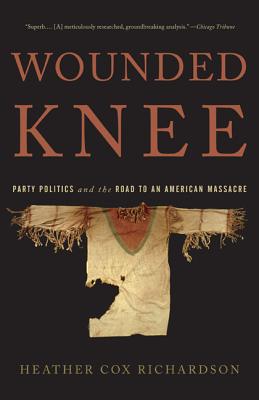History Chat - July 16, 2020
Link to Video

Summary: History of the republican party From the pro business politicians up to the election of Woodrow Wilson
Timestamp 3:25: With the election of 1912, Republicans panicked as all four candidates running are essentially Progressives. They had Taft Running as a conservative and Roosevelt ran under the new Bull Moose party. This split the republican vote, which allowed the democaratic Woodrow Wilson to be elected into office.
Timestamp 5:43: Wilson was raised in South Carolina in 1876-1877 and resided near the historic State house. He had an interesting perspective as he Lived in South Carolina, Was a Virginia Senator, and Taught in New Jersey. During his term, he re segregates and is seen as a Confederate.
Timestamp 9:14: Traditionally the President's annual message to congress was issued to congress to a clerk to later be read by congress. Wilson insisted on giving the Annual message in person, and explained it in detail, which resembled a lecture. This upset the Republicans because they felt as if they were being treated like school kids.
Timestamp 10:53: Wilson sets up a lot of reforms, focused primarily on Finance. He started with getting rid of the tariffs to help big business, and lower them so they only create revenue. With the Revenue act of 1913, they replaced the loss in revenue from tariffs with the Income Tax. This shifts the responsibility of taxation to those with Money instead of the average American.
Timestamp 13:12:Democrats launch investigation into the influence of money in American Politics. This is called the Pujo Committee and they look into how Wall Street gives control over the nation's finances (ex JP Morgan). This is popularized by the book called “Other People’s Money”
Timestamp 16:10:Federal Reserve System created in 1913, which puts the government in control of the money instead of bankers.
Timestamp 18:02: William Jennings Bryan is a well known democrat who was against imperialism and national security. By having him put into office, the democrats are forever seen as “soft on communism” or weak on national security. Had he not been in office, many Republicans would have been more eager to back him
Timestamp 20:00: The 17th Amendment is created, which is imperative as it states legislators have to be elected by the people so elections were harder to buy.
Timestamp 23:39: When WW1 broke out, Wilson claims neutrality. Republicans run with this saying he is disloyal to his country, doesn’t want to defend his country, and is holding his country back.
Timestamp 25:17: After the Bolshevik revolution of 1917, Americans became increasingly concerned about communism. This links back to the concerns regarding the redistribution of wealth, levelling the playing field, and the associated rhetoric from the Republican Party.
Timestamp 28:22: Wilson backed the League of nations in the Treaty of Versailles, and is criticized for his actions during the Mid Terms of 1918. During his campaign, he implied voting for him is voting for the League of Nations. Republicans run with this saying he is not running for America, but for the democrats and the one world government. The treaty ultimately got rejected, and is possibly the grounds for World War 2. This starts the groundwork for any President that works with other countries is working towards a one world government.
Timestamp 31:53: Once WW1 is over, all government contracts get cancelled. This causes a temporary depression in the winter. This results in strikes as people are unable to purchase Coal to warm their homes and such. This is also paired with the insurgency of the Spanish Flu. This is viewed as the infancy of Communism in the United States, which is publicized by the Boston Police Strike. The strike is broken by Calvin Coolidge, who states that “there is no striking against the public interest anytime for any reason”. This is later used by President Ronald Regan. Coolidge famously doesn’t care about situations, and is insistent on people getting back to work, which later makes him the hero of the Strike.
Timestamp 36:57: The heightened awareness of communism infiltrating the states peaked in the Red Summer of 1918-1919. Race Riots are also occurring in the South and the West. Soldiers returning home are greeted with Violence for their attempt to participate in American Society. This leads to the Tulsa Race Riots, where a city was firebombed from the air to target African Americans.
Timestamp 39:35: People are backlashing against laborers, specifically immigrant laborers from Republicans. Sacco and Vanzetti are arrested in Massacheusets for murder, but, they are remembered for being victims of a repressive government. They end up being executed, but people across the world follow their plight.
Timestamp 43:13: Anti communism sentiment grows, specifically from Republicans. This resulted in the election of Warren G Harding in 1920. He doesn’t really have a strong stance politically, and does what he is told as he is a “small town boy”. His Vice President Calvin Collidge and his acquaintances basically run the agenda.
Timestamp 47:20: As Harding becomes increasingly disconnected from the Presidency, the power should have diverted to congress, but instead transitioned to the Republicans. This changed them from being the opposing party to the party in control. This leads to the power going from Congress to the Executive branch, which was led by Herbert Hoover and other business minded men. During this time, the 1920’s are reshaped by promoting business domestically and overseas.
Timestamp 50:42: The Teapot dome scandal is when government owned oil lands are leased to industrialists for rock bottom prices.
Timestamp 53:47: Elections of 1920 and 1924 are the first time that Republicans have been entirely in control of the government since 1873. In an unregulated attempt to make the economy shine, they pump more money into the economy, in addition to the tax cuts and rebates previously provided. This causes stocks to rise, which allows stock owners to lend against their stocks on margin. This spikes consumer goods and balloons the stock market and gives the perception that the economy is strong. This leads to popularization within specific groups of people that there is no need for social programs as the economy is so strong.





